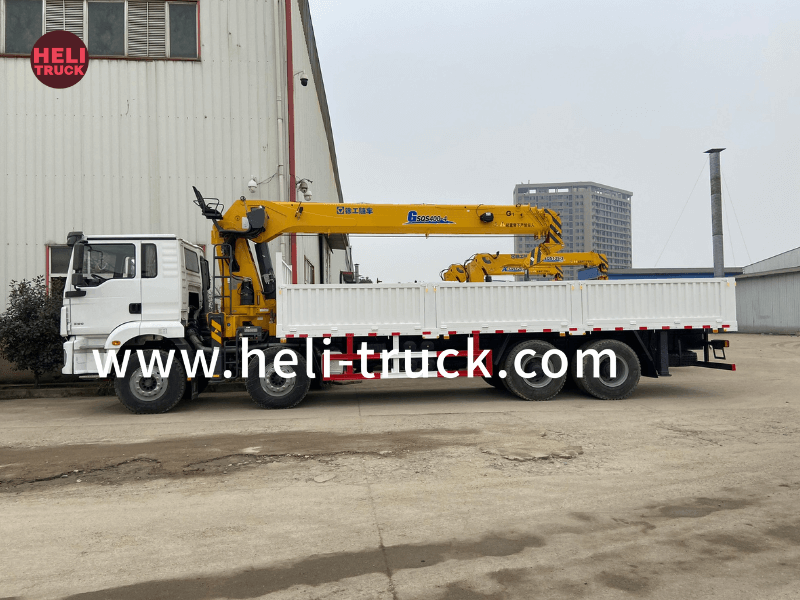Introduction
Work truck trailers are essential vehicles for businesses that rely on transporting goods, equipment, and materials to various locations. To ensure the safety, efficiency, and longevity of these workhorses, proper maintenance is crucial. Neglecting regular maintenance can lead to costly breakdowns, delays in operations, and even accidents on the road. In this comprehensive guide, we will discuss the importance of work truck trailer maintenance and provide you with a detailed overview of the best practices to keep your trailers in top condition.
Importance of Work Truck Trailer Maintenance
Work truck trailers are subjected to harsh operating conditions, including heavy loads, long hours of operation, and exposure to various elements on the road. Without proper maintenance, these trailers can experience wear and tear, leading to mechanical failures, safety hazards, and decreased performance. By investing time and resources into regular maintenance, businesses can prevent costly repairs, ensure compliance with safety regulations, and extend the lifespan of their work truck trailers.
Routine Maintenance Checklist
1. Inspect Tires and Wheels
One of the most critical components of a work truck trailer is its tires and wheels. Regularly inspect the tire pressure, tread depth, and overall condition of the tires to ensure they are in optimal working condition. Check for Refrigerated truck regulations of wear, punctures, or damage, and replace any worn-out tires immediately. Additionally, inspect the wheels for any signs of misalignment or damage that could affect the trailer's performance.
2. Check Brakes and Suspension
The braking system and suspension components play a vital role in ensuring the safety and stability of a work truck trailer. Inspect the brakes for signs of wear, corrosion, or malfunction, and replace brake pads or drums as needed. Check the suspension system for loose or worn-out components, including springs, bushings, and shock absorbers, and address any issues promptly to prevent further damage.
3. Lubricate Moving Parts
Proper lubrication of moving parts is essential for reducing friction, wear, and heat buildup in a work truck trailer. Regularly grease the wheel bearings, axles, hinges, and other moving components to ensure smooth operation and prevent premature failure. Use high-quality lubricants recommended by the trailer manufacturer and follow the recommended maintenance schedule for optimal performance.
4. Inspect Electrical System
A well-functioning electrical system is crucial for the proper operation of lights, brakes, and other essential components in a work truck trailer. Inspect the wiring, connectors, and lights for any signs of damage, corrosion, or loose connections. Test the brake lights, turn signals, and other electrical systems regularly to ensure they are working correctly and replace any faulty components promptly.
5. Check Couplings and Hitch
The coupling mechanism and hitch are critical components that connect the work truck to the trailer and ensure safe towing. Inspect the couplings, safety chains, and hitch components for any signs of wear, rust, or damage that could compromise towing safety. Ensure that the couplings are properly lubricated and adjusted according to the manufacturer's specifications for secure attachment and smooth operation.
6. Clean and Inspect Trailer Body
Regular cleaning and inspection of the trailer body can help prevent corrosion, rust, and structural damage that could compromise the integrity of the vehicle. Wash the trailer regularly to remove dirt, debris, and road salt that can accelerate corrosion. Inspect the body panels, flooring, and structural components for any signs of damage, dents, or rust, and address any issues promptly to prevent further deterioration.
7. Maintain Fluid Levels
Proper fluid levels are essential for the efficient operation of a work truck trailer's engine, transmission, and hydraulic systems. Check and top up the oil, coolant, brake fluid, and hydraulic fluid levels regularly to prevent overheating, friction, and component damage. Follow the manufacturer's recommendations for fluid types and change intervals to ensure optimal performance and longevity of the trailer.
8. Conduct Regular Inspections
In addition to routine maintenance tasks, it is essential to conduct thorough inspections of the work truck trailer at regular intervals. Check for loose bolts, damaged components, and signs of wear that may indicate potential issues. Inspect the trailer's frame, suspension, braking system, and other critical components to identify any safety hazards or maintenance needs that require immediate attention.
Benefits of Work Truck Trailer Maintenance
Proper maintenance of work truck trailers offers a wide range of benefits for businesses, including:

1. Improved Safety: Regular maintenance helps identify and address potential safety hazards, such as worn-out brakes, faulty lights, or damaged couplings, reducing the risk of accidents on the road.
2. Enhanced Reliability: Well-maintained trailers are less likely to experience unexpected breakdowns or malfunctions, ensuring smooth operations and on-time deliveries for businesses.
3. Cost Savings: Preventive maintenance can help businesses avoid costly repairs, replacements, and downtime associated with neglected trailers, saving money in the long run.
4. Regulatory Compliance: Regular maintenance ensures that work truck trailers meet safety and environmental regulations, reducing the risk of fines, penalties, or legal liabilities for non-compliance.
5. Extended Lifespan: Proper maintenance can help extend the lifespan of work truck trailers, maximizing the return on investment and reducing the need for premature replacements.
Conclusion
Work truck trailer maintenance is a critical aspect of fleet management that can have a significant impact on the safety, performance, and longevity of these essential vehicles. By following a routine maintenance checklist and investing in regular inspections and repairs, businesses can ensure that their work truck trailers operate efficiently, safely, and reliably. Remember that preventive maintenance is key to avoiding costly repairs, downtime, and safety hazards, so make it a priority to keep your work truck trailers in top condition for years to come.
